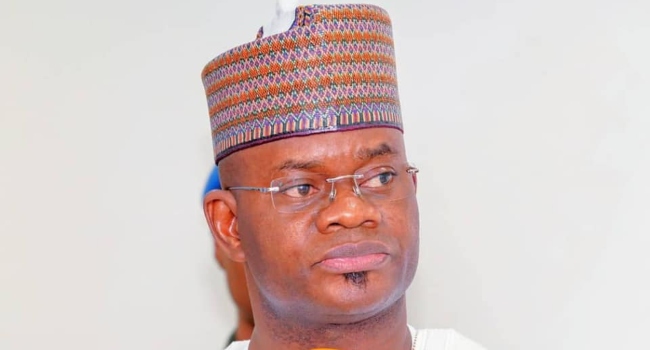The Federal High Court in Abuja ordered the detention of former Kogi State Governor, Yahaya Bello, at the Economic and Financial Crimes Commission (EFCC) facility.
Judge Maryann Anenih ordered that former Kogi State Governor Yahaya Bello remain in EFCC custody until December 10th. The court will decide on his bail application on that date.
Bello’s two co-defendants, Umar Oricha and Abdulsalami Hudu, were also ordered to remain in EFCC custody. All three defendants pleaded not guilty to the 16-count charge brought against them by the EFCC.
The EFCC, represented by Mr. Kemi Pinheiro, SAN, urged the court to deny Bello bail, citing his repeated refusal to attend previous court proceedings.
The EFCC informed the court that numerous attempts to bring Bello before the Abuja Division of the Federal High Court, where he faces additional charges, were unsuccessful. As a result, the Commission opposed the bail application filed by Bello’s legal team, led by former NBA President Joseph Daudu, SAN.
Following the not-guilty pleas entered by the former governor and his co-defendants, Umar Oricha and Abdulsalami Hudu, to the 16-count charge, Joseph Daudu, SAN, drew the court’s attention to a bail application.
In the application he predicated on six grounds, the former governor argued that he enjoys the presumption of innocence under the law, he argued that he should be granted bail to allow him to prepare his defense against the EFCC’s allegations, emphasizing his presumption of innocence.
Daudu, SAN, informed the court that his client had only received a copy of the charge the previous night at approximately 11 PM. He emphasized that Bello’s appearance in court was in response to the summons issued to him. The lawyer urged the court to disregard the EFCC’s claims regarding unrelated matters.
The prosecution counsel informed the court that some witnesses were ready to testify and requested immediate commencement of the trial. However, the defense counsel opposed this request.
The EFCC also argued that Bello’s bail application was premature, as it was filed before the arraignment.
“This court only assumed jurisdiction upon the arraignment of the defendants.
“It is only after arraignment that the bail application can arise and be heard.
“The application is premature, hasty, and contradicts the meaning of bail,” EFCC’s counsel, Pinheiro, SAN, submitted.
See Video here

